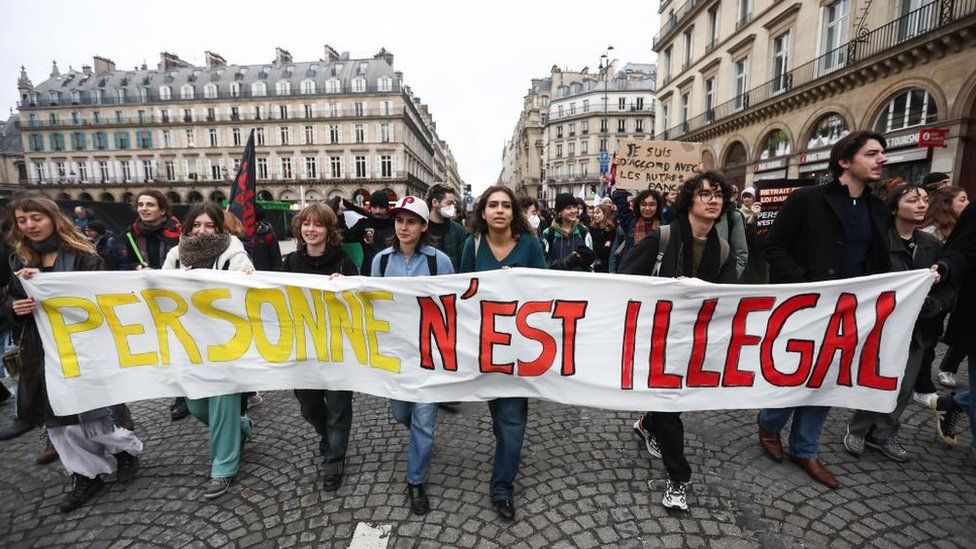-

-
-
Loading

Loading

The French government has announced its intention to pass a controversial immigration law despite several measures being deemed invalid. The rejected measures were added to the bill under pressure from right-wing and far-right groups. Nevertheless, the law still represents a stricter stance on immigration, allowing the deportation of foreigners legally residing in France with criminal convictions. Even those who arrived in France before the age of 13 or have lived there for more than 20 years could be expelled if they receive substantial prison sentences and are considered a serious threat to public order. Interior Minister Gérald Darmanin claims that the Constitutional Council validated all the government's measures, emphasizing that this law is the toughest of its kind in French history. The details of implementing the law will be announced on Friday, and from February or March onwards, each French prefect will have to assemble their files to determine which offenders should be expelled. However, the law also includes provisions that prohibit the detention of under-18s in centers and grants prefects the authority to issue one-year residence permits to undocumented individuals working in industries facing labor shortages, such as construction. The announcement of the law coincided with the release of migration figures, which revealed a 10.7% increase in the number of foreign offenders expelled from France in 2023, albeit still lower than pre-Covid levels. Additionally, asylum applications rose by 8.6% last year, although at a slower rate than the previous year. President Emmanuel Macron, who lacks a majority in the National Assembly and faces strong opposition from far-right parties heading into the European Parliament elections in June, relies on support from outside his government to pass legislation. Just five weeks ago, the government managed to pass its immigration law with the support of right-wing Republicans and the far-right National Rally (RN), prompting criticism from left-wing parties who accused Macron's centrist Renaissance party of enabling the far right and betraying their own principles. To secure the bill's passage, the government accepted various amendments, including limitations on family reunification and reduced access to welfare. However, these amendments were struck down by the Constitutional Council, leading to frustration among Republicans and the RN. Despite the setback, the government considers the ruling a victory since the original measures that had initially failed to pass were upheld. The president of the RN, Jordan Bardella, decried a "coup by the judges, with the backing of the president of the Republic himself," while Republican leader Eric Ciotti emphasized the need for constitutional reform to protect France's future. Commentators noted that the additional measures were rejected not because of their content but due to their lack of direct connection to the original legislation. The French right is now calling for a second immigration bill, but the interior minister has stated that he has no plans to introduce one.